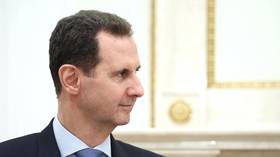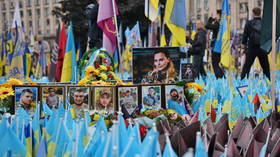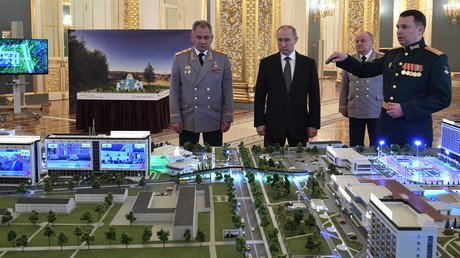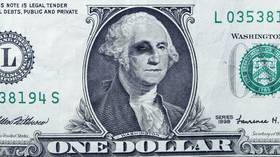Fruit of ‘US-backed colonization’: Israel to DOUBLE Jewish population in West Bank’s Hebron
Two weeks after the US announced that it did not consider illegal Israeli settlements in occupied Palestinian territories to be in breach of international law, Israel announced a plan to double the Jewish population of Hebron.
The plan announced by Israel’s newly appointed Defense Minister Naftali Bennett on Sunday will involve demolishing a wholesale market in Hebron and replacing it with a new neighborhood. At the moment, there are an estimated 200,000 Palestinians and 1,000 Jews living in the city.
The statement touted the move as ensuring “territorial continuity” between the existing Jewish Avraham Avinu neighborhood and the Tomb of the Patriarchs holy site, as well as the restoration of historic justice. The market area was owned by Jewish residents of Hebron since the early 19th century. But the deadly riot and pogroms of August 1929, in which dozens of Jewish residents were killed by Arab extremists, forced the evacuation of several Jewish neighborhoods.
Also on rt.com Outrage erupts over Trump administration’s ‘legalization’ of (still-illegal) Israeli settlements in West BankControl over the area switched hands along with the rest of the West Bank until going back to Israel after the 1967 war. The Palestinian wholesale market in Shuhada Street was constructed after that and remained a major gathering site until the 1990s. In 1994, a right-wing American-Israeli extremist opened fire at Palestinian worshipers, who had gathered to pray at a mosque at the Cave of the Patriarchs compound. He killed 29 people and injured over a hundred before being overpowered and beaten to death. The incident led to Palestinian riot, to which the Israeli administration responded by shutting down Shuhada Street to Palestinians, effectively stifling business. Access has since been partially restored, but the marketplace shops were never allowed to recover due to remaining restrictions.
The Bennett office said the redevelopment plan will respect the ownership of Palestinians to ground floor properties.
Also on rt.com Israel cuts Palestinian farmers’ access to their land behind separation wall with yearly quotasThe news was hailed by Jewish settlers in Hebron, who said it will bring justice “for which the Israeli nation has been waiting for 90 years.” Others were highly critical of the decision.
Dr Saeb Erekat, a senior Palestinian official and a former chief negotiator for the Palestinian Authority, said the Israeli move was the first tangible result of Washington’s decision “to legitimize colonization” two weeks ago. He was referring to the much-criticized announcement by the Trump administration that the US no longer considers Israeli settlements in occupied Palestinian territories to be in violation of international law. Erekat called on the international community to impose sanctions against the Israeli settlements.
Israel’s decision to build a new illegal settlement in occupied Hebron is the first tangible result of the US decision to legitimize colonization;this cannot be taken out of the context annexation:Concrete measures,including sanctions against settlements are an Int.responsibility
— Dr. Saeb Erakat الدكتور صائب عريقات (@ErakatSaeb) December 1, 2019
Criticism also came from Tamar Zandberg, a member of Knesset for the opposition Democratic Union. She branded Bennett “a messianic” and called Hebron “the capital of Israel’s apartheid,” referring to the separation of Jewish and Arab populations in the West Bank city.
If you like this story, share it with a friend!














